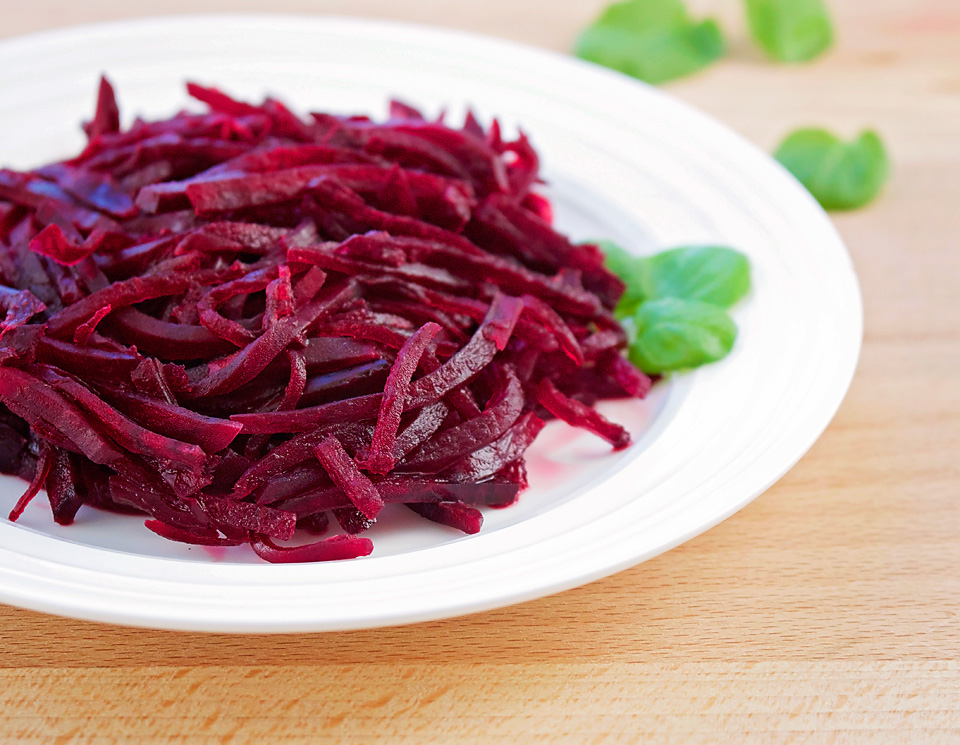I think I am one of the only people who buys beets at my local Natural Food store…which is a shame! That’s because fermented beets are one of the few foods that offer their unique combination of polyphenols and betalains, which are highly effective antioxidants and are known to help protect against various cancers (especially colon cancer), heart disease and birth defects. Beets are common in Russia, perhaps a major contributor to the overall longevity of the Russian population. Beets also increase liver productivity because they contain betaine. But if you really want to get the most out of your beets you will turn to fermentation (pickling).

Why everyone should eat fermented (pickled) food
The first point I want to make about pickled foods is that not all fermentation processes produce equally beneficial fermented foods. Those that use vinegar are not sufficient. Natural fermentation needs nothing other than salt, water and time to let the beneficial bacteria develop.
You can really ferment any vegetable and it will yield a high number of probiotics (Lactobacilli mostly). These friendly bacteria create lactic acid which protects the food from rotting. The live organism that develop through fermentation are naturally acid resistant, which means they can repopulate in your gut. Another benefit is that the nutrition contained in the vegetables are “pre-digested” and easier for our bodies to absorb.
“The proliferation of lactobacilli in fermented vegetables enhances their digestibility and increases vitamin levels. These beneficial organisms produce numerous helpful enzymes as well as antibiotic and anti-carcinogenic substances. Their main by-product, lactic acid, not only keeps vegetables and fruits in a state of perfect preservation but also promotes the growth of healthy flora throughout the intestine.”
How to Make Naturally Fermented Beets
This recipe is for one jar of pickled beets (but can easily be doubled):
- 6 medium beets
- 1/2 tsp.sea salt
- 2 cups water
- Optional Seasonings: mustard seeds, coriander seeds, fennel seeds, cinnamon stick, cloves
Directions
- Wash and dry the beets.
- Puncture the beets in several places with a fork or knife. Placing them on a baking sheet, bake at 300 degrees for about 3 hours or until soft.
- Peel off the skin and chop into thin slices.
- Pack beets firmly into a very clean wide-mouth quart-sized canning jar.
- Make a brine of sea salt dissolved in water.
- Pour the brine over the beets until the liquid is 1 1/2 inches from the top of the jar. The beets need to be submerged in brine.
- Cover tightly and keep at room temperature for about 3 days before transferring to cold storage.